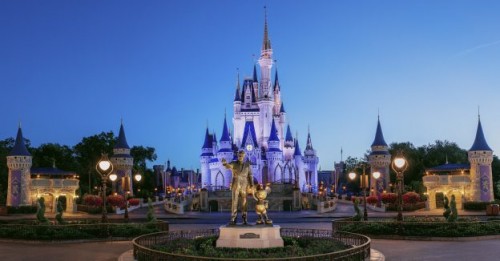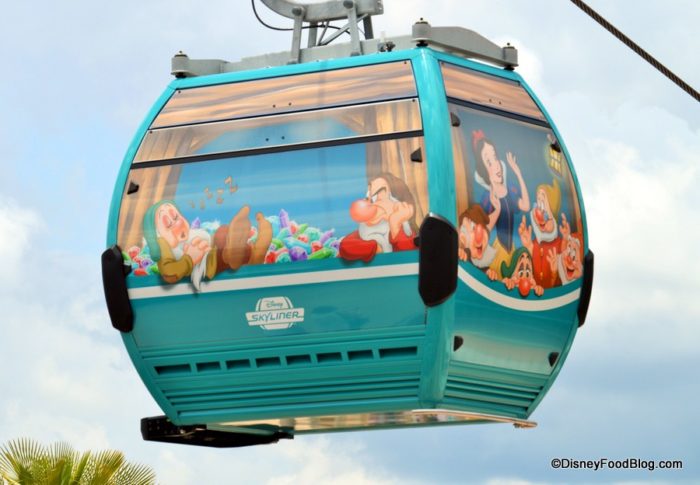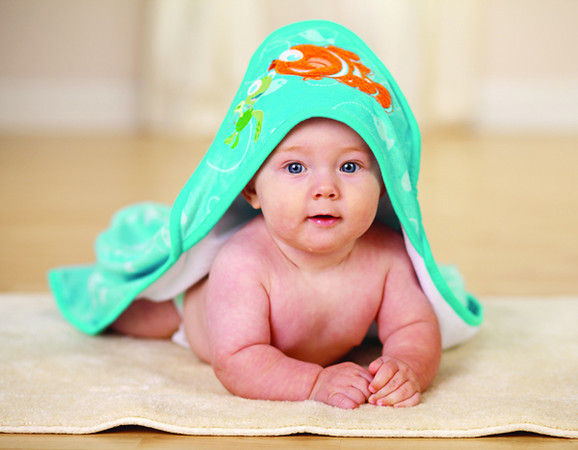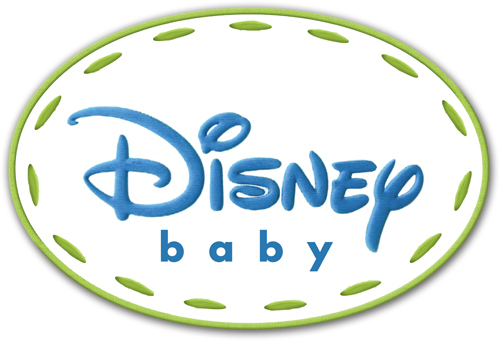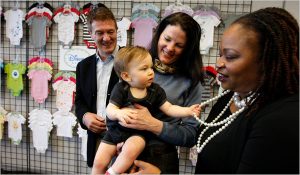
Quietly, while everyone was focused on theme park expansions on both coasts, “Toy Story 3” Oscar nominations, and a farewell party for Hannah Montana, Disney up and started a brand new segment of business. But they aren’t marketing it to you, yet. They’re starting with new mommies and daddies, while they’re still in the hospital, caring for their brand new bundles of joy.
In January, Disney launched DisneyBaby.com, and to promote the new website and product line, they’ve taken to 580 of America’s maternity hospitals.
Disney representatives aren’t directly marketing the products or the site; they’re paying Our365 to do it for them. Our365 sells bedside baby pictures to new parents, and as such, they have an exclusive relationship with many hospitals to promote their products, as well as the products of third parties. Disney isn’t their only client; they also represent – and promote the products of – Fisher Price and Proctor & Gamble.
Some groups feel like Disney is walking a fine line, since the push to interest parents in DisneyBaby.com amounts to an attempt to introduce the brand to parents at an earlier point in their childrens’ lives. Market research has shown that most parents don’t really embrace Disney on their childrens’ behalf until the preschool years, when youngsters are introduced to characters via the Disney Channel, or perhaps classic films. And because Disney estimates that the North American baby market – that is, the market for all of baby’s (and parents) wants and needs – is worth approximately $36.3 billion annually, it stands to reason that Disney would want to tap into that market. But concerns linger.
In the past, Disney has come under fire for trying to market products aimed at the infant population. The most harsh criticism came over the “Baby Einstein” products, which were touted as enhancing baby development. Consumer watchdog group The Campaign for a Commercial Free Childhood counted it a victory when Disney was forced to admit that claims about the products had been exaggerated.
Even though the new products don’t claim to turn Junior into a child prodigy, advocacy groups are concerned about other issues, like privacy. “This is taking advantage of families at an extremely vulnerable time,” said Jeff McIntyre, director of national policy for the advocacy group Children Now.
Still, there is money to be made, and if Disney is offering a superior product with a stable of beloved characters and stories to charm parents, Disney CEO Bob Iger thinks the partnership between DisneyBaby.com and parents is a good fit. “If ever there was an opportunity for a trusted brand to enter a market and provide a better product and experience, it’s this. I’m extremely excited about it.”
In the long run, the point of the marketing, the site, and the products is to draw new customers to the company. They are, for instance, working on a loyalty program, which might reward moms-to-be with Disney perks, just for signing up for email alerts.
Disney does have a limited number of consumer products for infants and small children, but they feel that unifying the brand in this way can bring greater success. Andy Mooney, chairman of Disney Consumer Products, is heading the new campaign to reach tiny tots, and has demonstrated incredible success in revamping and unifying another very lucrative product line: Disney Princesses. When Mooney brought the popular characters together into one collection, he transformed $300 million worth of business into a $4 billion brand.
While the line of Disney products is starting simply, with apparel such as bodysuits, the company plans to expand into a wide range of products, including bath items, strollers, even baby food.
Philip Kotler, Marketing Professor at Northwestern University’s Kellogg School of Management, wonders what took the company so long to make the move, given Disney’s proven ability to perform in children’s markets. Still, he cautions that there could be a backlash from parents who feel that the Disney culture is too pervasive. He says that brand loyalty inspired by the freebies is imperative. “Disney needs those moms who are getting a free sample to stand up and say, ‘Yes, I’m savvy enough to realize what Disney is up to, but I don’t care because this is a really great product,'” he suggested.
Photo copyright The New York Times.

